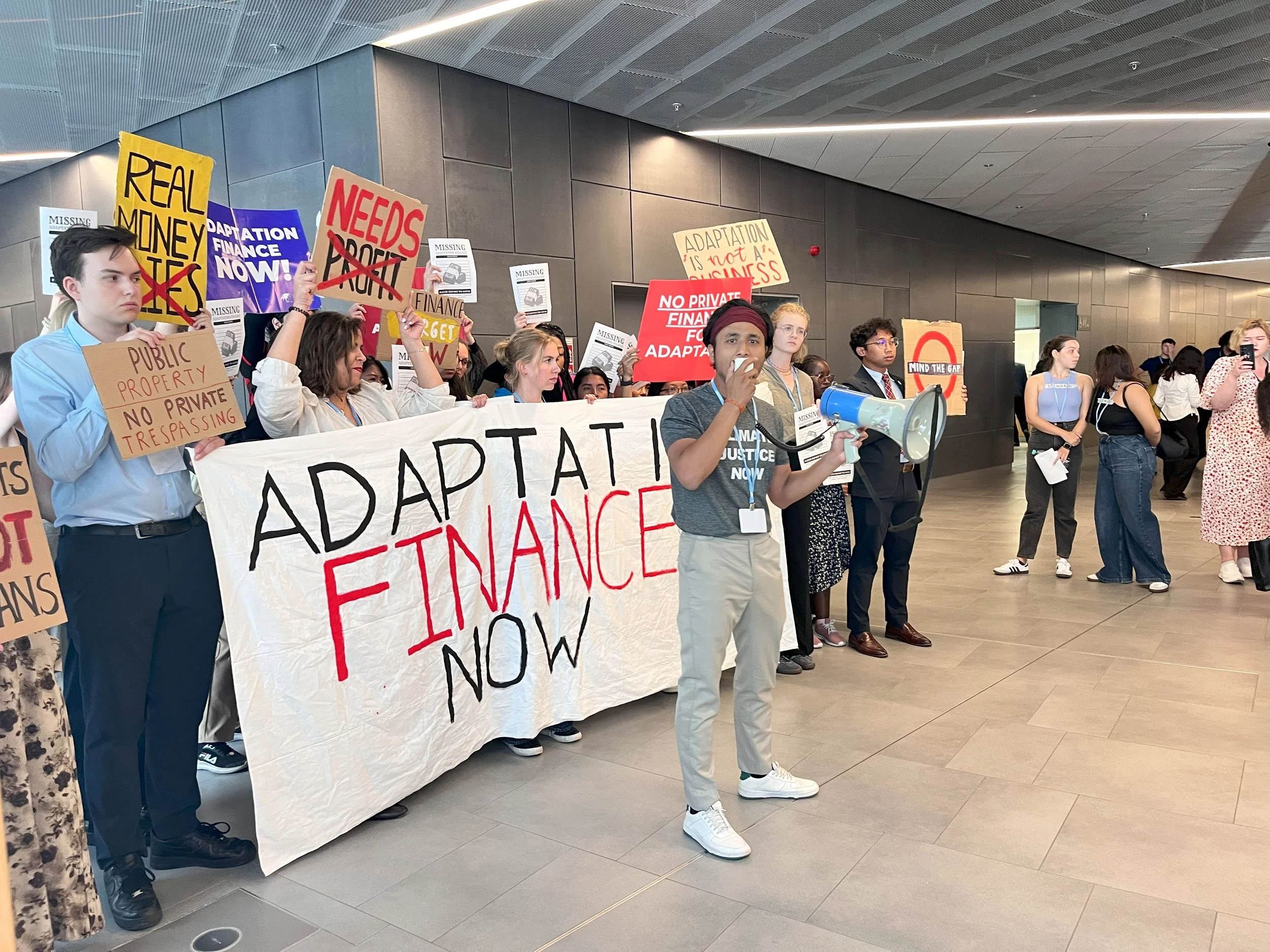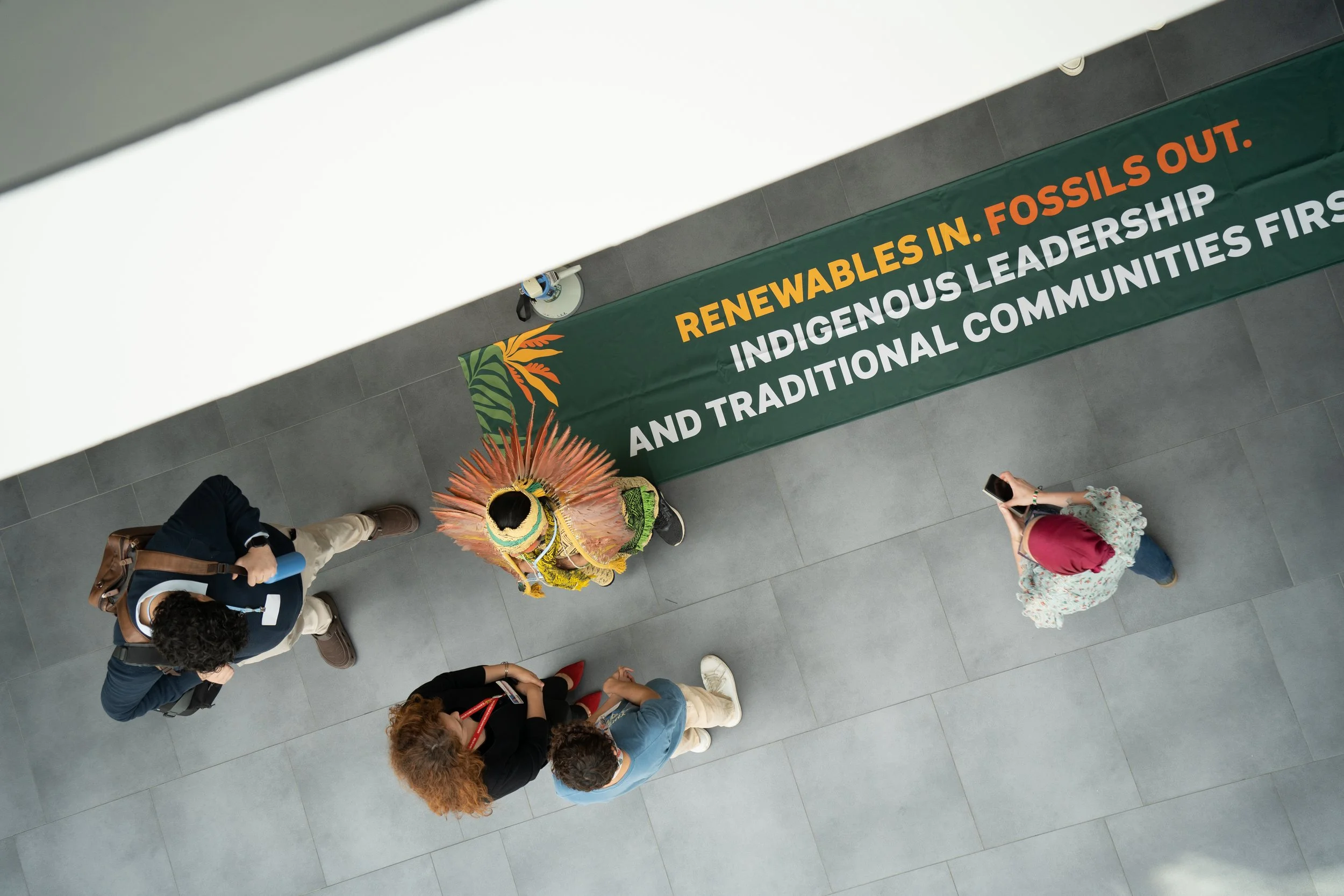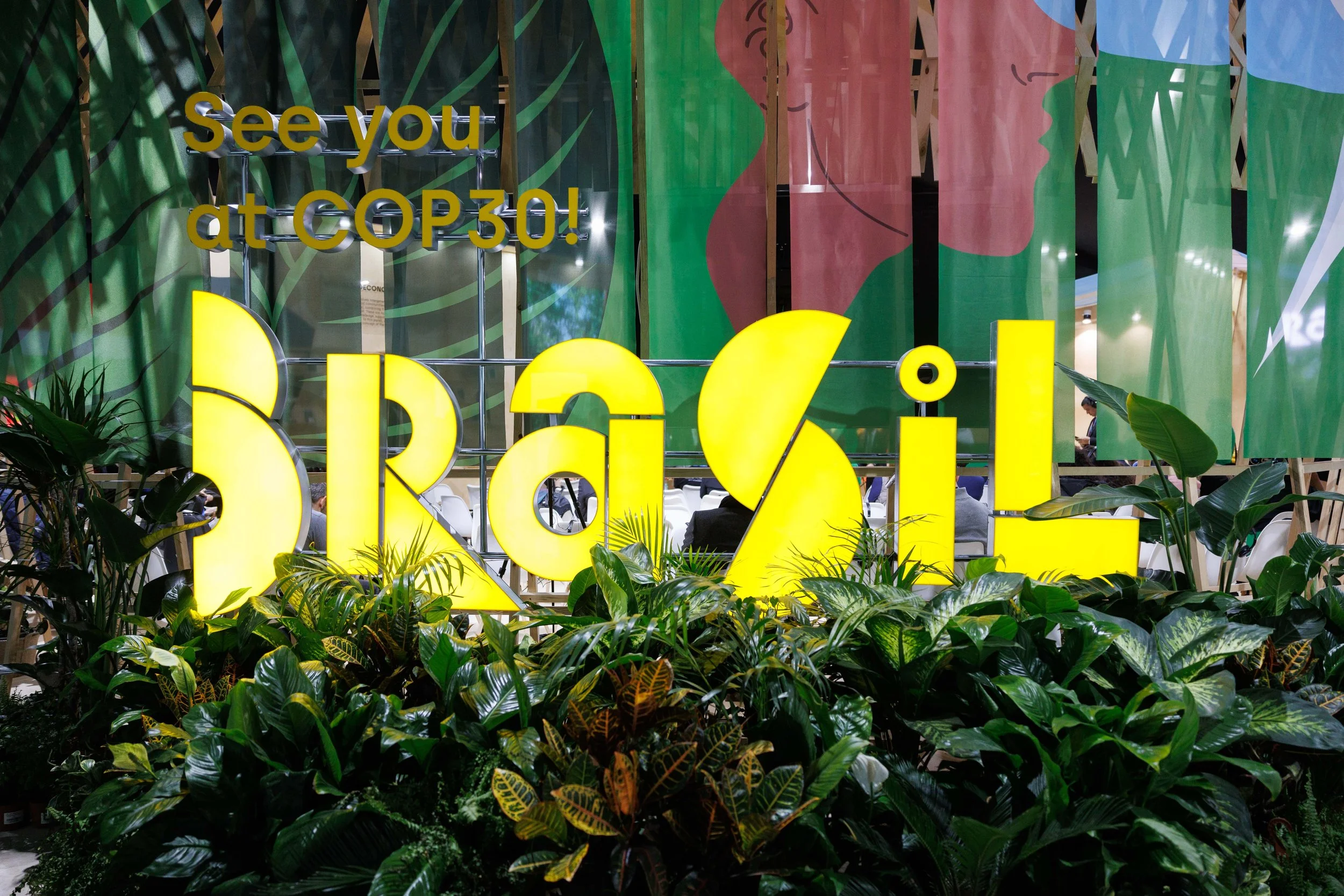Gender in the SB62 Climate Negotiations: The Hope for an Ecofeminist COP30
Credits: EmpoderaClima.
Written by Amanda Rossini Martins, Researcher at EmpoderaClima, Annia Klein, Communications Director at EmpoderaClima, and Fernanda Lagoeiro, Media Relations at EmpoderaClima
SB62 and EmpoderaClima's Perspectives
From June 16 to 26, 2025, the city of Bonn (Germany) hosted the 62nd Subsidiary Body Session of the UNFCCC (SB62), a crucial technical stage of climate negotiations that precedes the Conference of the Parties (COP) every year. In this space, civil society plays an essential role in pressuring authorities to deliver fairer, more ambitious, and more inclusive climate proposals ahead of COP30, which will take place in Belém, Brazil, in November of this year.
With the climate crisis worsening, expectations were high for progress in the negotiations. Brazil stood out with the active participation of its official delegation, COP30 Youth Climate Champion Marcele Oliveira, and civil society representatives committed to the agenda that will guide discussions at COP30.
EmpoderaClima participated in SB62 with a delegation of four Brazilian activists, engaging in side events, building alliances with national and international blocs, and closely following the negotiations on gender and just transition—one of the priorities emphasized by the COP30 presidency.
Our organization was also present at the workshop to facilitate the planning of activities for the new Gender Action Plan (GAP), aiming to ensure that gender perspectives and intersectional justice are meaningfully integrated into the debates and decisions that will shape the road to COP30 in November.
Credits: Laura Murillo
Gender negotiations: what we have achieved and what we still hope for
It is impossible to talk about the climate crisis without addressing gender equality and climate justice.
Under the United Nations Framework Convention on Climate Change (UNFCCC), gender negotiations are guided by the Gender Action Plan (GAP). At COP29 in Baku, Azerbaijan, the expanded Lima Work Program was approved for a period of 10 years, paving the way for a new Gender Action Plan, which is expected to be adopted at COP30. Since COP25, this process has been moving forward, gaining momentum with the revision of the old GAP at COP27 and reformulated based on the discussions at COP28.
At SB62, work began on the new Gender Action Plan, with active participation from Parties, representatives of civil society, indigenous peoples, and environmental advocates. The goal is clear: to make the gender perspective a structural and foundation of global climate policy, recognizing that climate justice is only possible when gender equality is achieved and when historically silenced voices are heard.
However, challenges remain, such as the low presence of women in technical decision-making spaces, setbacks in gender-responsive language, and a lack of mainstreaming in other agendas.
At the same time, progress has been made in areas such as sexual and reproductive health, gender-based violence, care work, and the inclusion of marginalized groups. The Women and Gender Constituency (WGC) played a decisive role in demanding funding, gender-sensitive climate education, and protection for women environmental defenders.
The new GAP brings important proposals, but still fails to fully incorporate intersectionality, which is essential to capturing the multiple inequalities in the face of the climate crisis. In addition, attempts by some countries to limit the concept of gender compromise the progress of negotiations. Climate justice will only be possible with gender justice, and this requires listening, courage, and real inclusion.
Credits: EmpoderaClima
Just Transition: an ecofeminist demand
One of the emerging themes in 2025, which was also widely mentioned during SB62, was Just Transition. Although essential, this concept risks losing its meaning if it is not made intersectional and operational.
In 2024, the Working Group on Just Transition, after negotiations, was unable to approve a final text, which also raised expectations for resolutions on the issue this year. In 2025, however, facilitators and negotiators adopted a more pragmatic stance, working strategically to foster cooperation among Parties, and providing solid structures of "informal notes" (documents prepared by the co-facilitators to support the negotiation process) for discussion, in order to build a base text for COP30 — and this time, they succeeded.
The agreed “informal note” does not fully reflect civil society’s ideal scenario, as it is based on multilateral concessions, that left certain issues unresolved. Even so, the text represents real progress. It is a solid starting point that could lead to concrete results in Belém.
Among the positive elements of the final SB62 document, we highlight:
● The explicit recognition of gender equality as part of the principles of a just transition;
● The acknowledgment of the care economy as an essential component of the energy transition;
● And, for the first time ever: the possibility of operationalizing the just transition through a global cooperation mechanism, a powerful demand brought largely by civil society constituents, such as the Women and Gender Constituency, YOUNGO, Indigenous Peoples Organizations, Trade Unions, among others. This is a proposal for a new mechanism to drive an integrated just transition process, with cooperation within and between countries, exchange of knowledge, technologies, and resources, respecting equity and human, labor, and indigenous peoples' rights.
From an ecofeminist perspective, a just transition must be rooted in gender justice, with the direct participation of the affected communities, not only as beneficiaries, but as co-creators of solutions. After all, a just transition cannot be limited to energy change. It must be connected to agendas such as financing, loss and damage, adaptation, mitigation, and human rights. Otherwise, it will be just a new form of exploitation, now "painted green."
Credits: Lara Murillo
The road to COP30: gender justice must be central to all areas
SB62 was a technical but decisive step towards COP30. This meeting represented a historic opportunity to leverage the influence of the Amazon, traditional peoples, and women at the center of the global climate agenda.
Without gender justice, there can be no climate justice, no just transition—and no viable future. The negotiations in Bonn (SB62) made it clear that gender cannot be treated as a secondary or technical issue: it is structural and cuts across decisions, resources, and priorities in the response to the climate crisis.
EmpoderaClima's actions reinforced this urgency. Although women are leaders in solutions and resistance, they continue to be excluded from climate decision-making processes, especially in financing.
Until COP30, it will be crucial to ensure an inclusive GAP and to pressure the Parties to keep it that way during the negotiations in Belém. In addition, it is imperative to fight for funding and to demand that Brazil, as host, commit to a fair and inclusive climate agenda.
More than a conference, COP30 is a chance to reposition the Global South as a protagonist in the fight against climate change. It is a significant step toward amplify ecofeminist, community, and plural voices that offer real ways to confront and create solutions to this planetary crisis.
Credits: Kamran Guliyev





